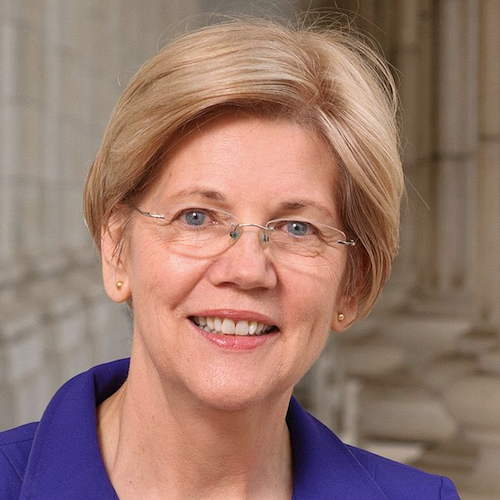
Some assisted living community operators understandably were concerned in February after the Government Accountability Office released a report about federal oversight of assisted living services offered to Medicaid beneficiaries.
In the report, titled “Medicaid Assisted Living Services: Improved Federal Oversight of Beneficiary Health and Welfare is Needed,” the GAO proposed changes to the way the Centers for Medicare & Medicaid Services and state Medicaid agencies work together. Specifically, the GAO said CMS should:
- Provide guidance and clarify requirements regarding the monitoring and reporting of deficiencies that states using home- and community-based services waivers are required to report on their annual reports;
- Establish standard Medicaid reporting requirements for all states to annually report key information on critical incidents, considering, at a minimum, the type of critical incidents involving Medicaid beneficiaries, and the type of residential facilities, including assisted living facilities, where critical incidents occurred; and
- Ensure that all states submit annual reports for HCBS waivers on time as required.
Still, the lay media and online posts by consumer advocacy groups used the occasion to criticize assisted living.
The Long Term Care Community Coalition and the Center for Medicare Advocacy called for state and federal governments to develop websites for assisted living similar to Nursing Home Compare and also recommended that the federal government “take immediate steps to protect assisted living residents by enacting sensible standards to ensure safety and dignity.”
Even a press release issued by the four senators who initially requested the report in 2015 could have been interpreted as being critical of assisted living. “GAO Investigation Finds Over 20,000 Serious Health and Safety Incidents in First-Ever National Assessment of Quality of Care in Assisted Living Facilities” was the headline on that release.
“I plan to pursue legislation to address these groundbreaking findings,” Sen. Elizabeth Warren (D-MA), one of them, said in the release. The report, she said, “finds that thousands of seniors face serious health and safety risks in their assisted living facilities.”
Another requester, Sen. Susan Collins (R-ME), chair of the Senate Special Committee on Aging, said that “the GAO uncovered a number of troubling issues at some assisted living communities” and said she would “continue to work with my colleagues to support policies that improve the well-being of seniors who receive care at these facilities.”
Sen. Claire McCaskill (D-MO), who was ranking member of the Senate Aging Committee when she requested the analysis with her colleagues, echoed Collins’ remarks, saying that the report “shows a troubling breakdown” of care and safety in assisted living. “I’m looking forward to working with my colleagues on both sides of the aisle to turn our deep frustration at these findings into action, to better protect our seniors and ensure they’re getting the best care possible,” she added.
And Sen. Orrin Hatch (R-UT) indicated that more federal efforts were planned, saying that the report “underscores the importance of improved reporting at assisted living facilities and starts the conversation on how we can make it better.”
After Argentum’s Public Policy Institute in March, however, Argentum Chief Operating Officer Maribeth Bersani told McKnight’s Senior Living that in conversations that leaders of the organization have had with the senators’ staff members, “none of them were even calling for legislative solutions except for Sen. Warren’s staff. What they said was that they were going to be talking to CMS and encouraging that they have better communication and oversight with state Medicaid agencies, and if they didn’t follow up on that then they might introduce legislation requiring that, but it had nothing to do with the regulation of assisted living.”
Argentum agrees with the report’s recommendations on ways CMS could help states improve their monitoring and reporting of deficiencies and critical incidents in assisted living, including standardizing Medicaid reporting requirements, Bersani said.
“There needs to be better communication and coordination with CMS and the Medicaid agencies,” she said, noting, however, that Argentum wants to ensure that government officials are aware that the GAO report calculates the number of assisted residents differently than does the Centers for Disease Control and Prevention. The CDC does not include in its total younger people who have intellectual or developmental disabilities or traumatic brain injuries. Argentum uses the CDC’s statistics.
Argentum also hopes to further educate lawmakers and their staffs on how the Medicaid program is administered in the various states, since it varies by state.
LeadingAge and the National Center for Assisted Living also said they support the GAO report.
Lilly Hummel, JD, MPA, senior director of policy and program integrity at NCAL, told McKnight’s Senior Living that assisted living operators in some states most directly may be affected by the report when their states seek to implement new reporting requirements related to the recommendations.
“In some states, the monitoring system and the critical incident management reporting system meet CMS requirements, and I actually wouldn’t anticipate any changes. The state may already have robust monitoring processes in place,” she said. “In other states, it could be that CMS … will put out more guidance to states or states will in some way modify their critical incident reporting system … so there may be new reporting requirements for assisted living.”
Overall, however, Hummel said, “The recommendations have much stronger implications for the Medicaid state offices than for assisted living providers directly, because the recommendations are all aimed squarely at the guidance that CMS needs to be issuing to states — what data the states should be collecting and then reporting back to CMS. So the evaluation and the findings really focus on the CMS oversight process and the reporting process. At this point, I’m not anticipating, just looking at these findings, broadscale changes for assisted living.”



